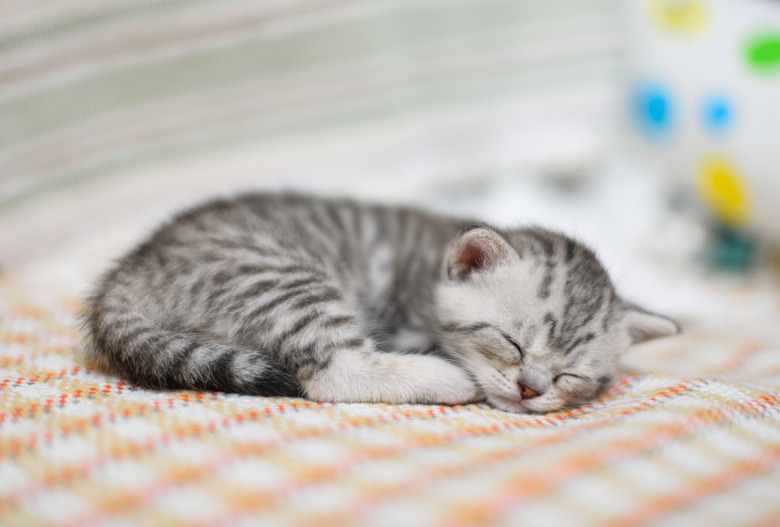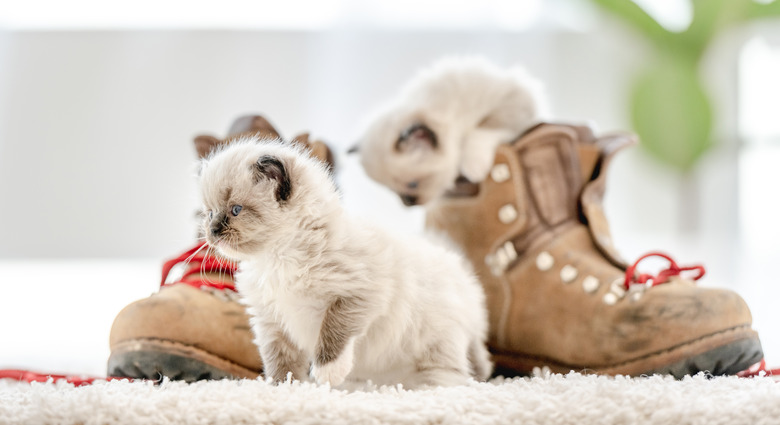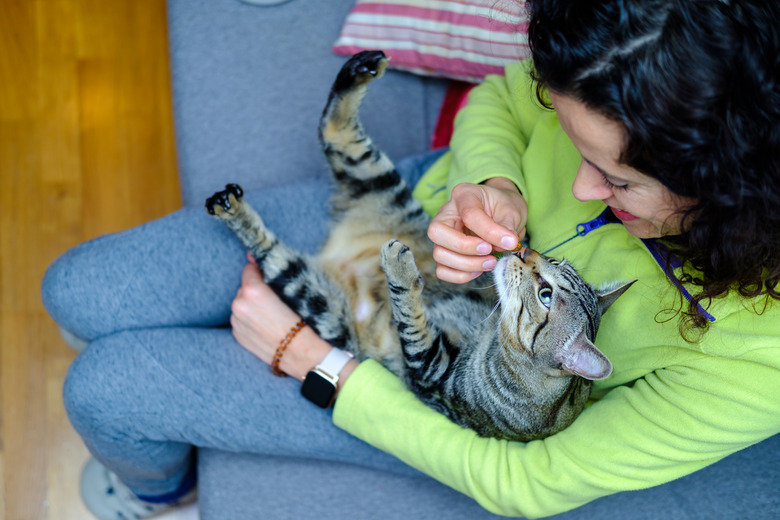Why Is My Kitten Not Eating?
Welcoming a new kitten into your home is one of life's great moments, but it's not all fun and cuddles and Instagram hashtags. With your new pet comes new responsibilities, and chief among them is ensuring that they have access to a healthy, nourishing, and diversified diet. But what if your kitten is not eating? You can trace a reluctance to nom nom nom to any number of factors, some more concerning than others.
Reasons for a kitten not eating
Reasons for a kitten not eating
Any prolonged loss of appetite usually indicates illness or injury. If you noticed your kitten not eating in 24 hours, get them to a veterinarian quickly. This is particularly important if the kitten seems lethargic or is showing signs of weight loss. Remember that kittens by their very nature are energetic and playful, and most of the calories they consume fuel their growth and development. Any variation in eating behaviors is alarming.
If a kitten won't eat, it's possible you're dealing with something serious like feline viral infections, including FeLV or FIV (feline leukemia virus and feline immunodeficiency virus). But it could also be something much less threatening and more likely, such as intestinal parasites that can be dealt with. Vaccinations can also dampen your kitten's appetite, but this is typically mild and passes in a day or two.
Kittens need to stay clean
Kittens need to stay clean
No one likes to eat or drink from a dirty bowl, and kittens are no exception. To this end, wash your pet's bowl or plate daily and toss any leftover scraps between meals. While plastic is easy and cheap, it's also less germ-resistant because it's porous. For this reason, many cat care professionals recommend that you upgrade to metal or ceramic if at all possible.
Another complication can stem from the size and shape of the receptacle. Deep or narrow bowls, for instance, can interfere with a cat's whiskers, which might encourage them to shy away.
Cat feeding locations are important
Cat feeding locations are important
Cats typically prefer to eat in private, so find a quiet feeding corner or nook where foot traffic from people and other pets won't disturb your kitten's meals. If competition from other cats (or kittens) is giving your little one anxiety, you'll need to develop a workaround in some sort of space where they can dine in peace.
Develop consistent daily routines for a cat
Develop consistent daily routines for a cat
Cats are creatures of both comfort and routine. If you have a lethargic kitten who isn't eating regularly, it might be because you're not feeding them regularly. If possible, establish a schedule — say once in the morning and then again at night — and keep to it. If you can't be home during the day because of work, school, or travel commitments, invest in an automated feeder that you can program to dispense the food in prescribed amounts and at prescribed times. You can also leave out a small amount of dry food for a snack.
At the same time, changes in a routine — a move to a new home, a trip, a new schedule, or a baby (or even a new adult in the home!) — can leave a cat unsettled. They usually come around to their new reality, but it can take some time and the transition isn't always a smooth one.
Warm up your kitten's food
Warm up your kitten's food
We all love a hot lunch from time to time, and kittens are no different. While the food shouldn't be piping hot, warming some wet food up in the microwave for a few seconds can entice him to wolf down their meal. Heat activates a food's odor, making it more likely that your kittens will come a running when you go to prep their breakfast, lunch, or dinner.
Since microwaves heat unevenly, stir the food to combine hot and less hot parts. After stirring, check the temperature in different parts of the food with your finger before giving it to your kitten to be sure it's not too hot.
Provide variety in your kitten's diet
Provide variety in your kitten's diet
Would you want to eat the same exact thing every single day? Probably not, and neither does your new little bestie. Experimenting with different brands, consistency (wet and dry), flavors (fish, chicken, beef), and the like can bring a kitten who doesn't want to eat back to her dish in a hurry. The same is true of peppering their dish with something like bonito flakes, cat vitamin powder, or the juice from a can of tuna.
To reduce boredom, food allergies, and digestive issues, some experts recommend changing up your cat's diet two to four times a year. If you do this, do so gradually to avoid upsetting your cat's gastrointestinal system.


